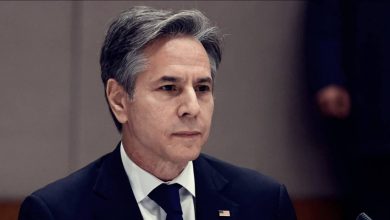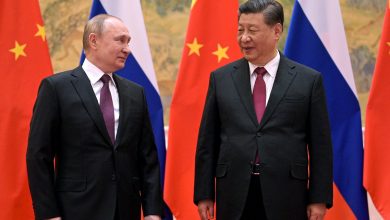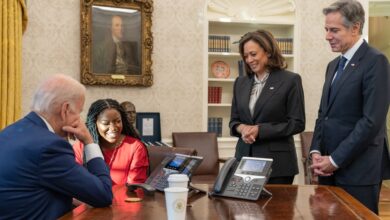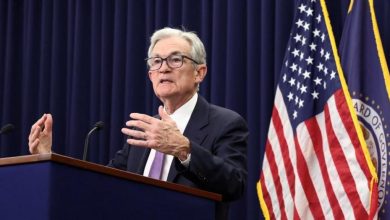How Moscow is looking for new allies
Russia is internationally considered to be largely isolated. But the Kremlin continues to maintain alliances with some economic powers - and is trying to build a counterbalance to the West with them.

In his speech to the Duma in mid-February, Russia’s Foreign Minister Sergei Lavrov sounded almost triumphant when he commented on his country’s international relations: “Attempts to isolate Russia have failed and our enemies have to admit it.”
Shortly before, Russia’s chief diplomat had returned from an extensive trip to Africa through numerous countries. Lavrov had campaigned there to intensify the partnership with Russia. It was not only during his visit to Eritrea that Lavrov questioned the dominance of the West on the African continent. “The formation of a multipolar world is an objective process that cannot be stopped,” Lavrov said. The collective West, the US and NATO, which Lavrov believes is completely under their control, would try to reverse this process – but in vain.
Lavrov tirelessly urged the African states to emancipate themselves from the former colonial masters. The “crimes of the colonial powers” have no statute of limitations and “deprive Western elites of the right to claim moral leadership,” Lavrov said. Also because their “colonial instincts” are still there.
Russia as an alternative to former colonial powers
Russia is trying to present itself as an alternative pole to the West and to underline its claims to being a great power. This is how Günther Maihold, deputy director of the Stiftung Wissenschaft und Politik, assesses Russia’s courtship of African states.
Last but not least, this is also a signal to its own population that Russia is not isolated internationally. “However, many African states have also made it clear that they condemn the breach of international law and are not giving Russia a free pass,” said Maihold.
Big plans for BRICS countries
Russia’s particular focus is on the BRICS countries, i.e. the group of emerging economies, which, in addition to Russia, also include China, India, Brazil and South Africa. Although the BRICS countries did not approve of Russia’s war of aggression against Ukraine, they did not participate in the West’s sanctions either.
Moscow and Beijing would like to expand the group of BRICS countries, for example to include countries such as Iran, Argentina or Algeria. Before his visit there, Lavrov said in an interview with RT Arabia that a format had to be found that reflected the interests of the candidate countries “by engaging in cooperation with BRICS for the implementation of the principles of justice and democracy in international political and economic Use relationships.”
BRICS countries in a political quandary
The US monopoly as the world’s leading nation has been broken, Lavrov rejoiced. But some of the BRICS countries are not all that enthusiastic about the club’s expansion plans. India, Brazil and South Africa fear that their status will be diluted. According to Maihold, the anti-Western orientation of the BRICS group, as promoted by Moscow and Beijing, would put the three countries in a quandary.
The BRICS countries would also want to maintain a clear articulation with Western countries. “And that creates an inner tension that is particularly difficult for India, Brazil and South Africa and obliges them to a certain position of maneuvering through,” says Maihold.
A maneuver with sobering, sometimes worrying signals to the West. Along with Russia and China, South Africa is currently holding a joint naval maneuver off the African coast. During his inaugural visit to the newly elected Brazilian President Luiz Inácio Lula, Chancellor Olaf Scholz received a clear rejection when he solicited arms supplies for Ukraine.
Instead, Lula brought his country into play as a mediator – a kind of peace club could be founded together with China. Beijing intends to present a peace initiative shortly.
Russia’s friends remain cautious
That leaves India, which traditionally has a close partnership with Russia in the fields of energy, economy and the military. Russian President Vladimir Putin praised relations with India at the international Valdai discussion forum last year: “We have never had complicated issues with India, not once. We have always supported each other and I’m sure that’s how it works further in the future.”
Even if India was an important buyer of Russian oil last year, Maihold points out that they do not see themselves in an alliance with Russia. Although India has intensive and also military relations with Russia, on the other hand it is also interested in not getting caught between the fronts and in maintaining an independent position.
A year after the beginning of the Russian war of aggression against Ukraine, Moscow is looking for new strategic partners. Many of them sit between the chairs. Even if the Kremlin is not completely isolated, there is currently no broadly based antithesis to the West.





